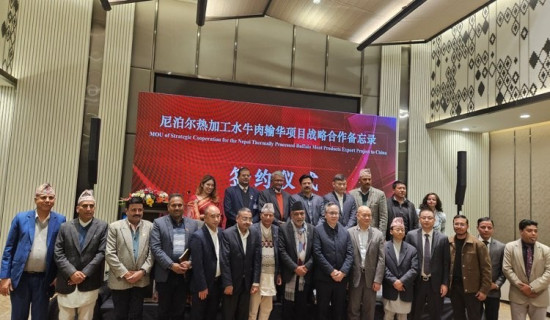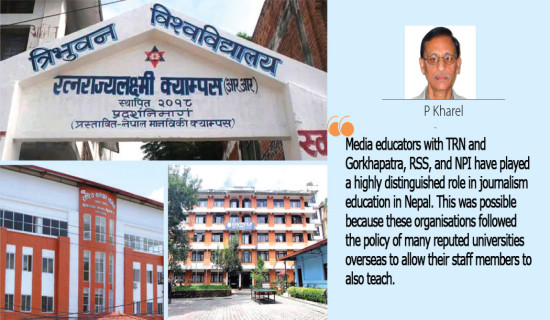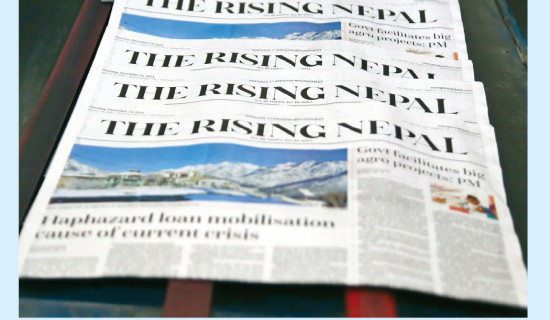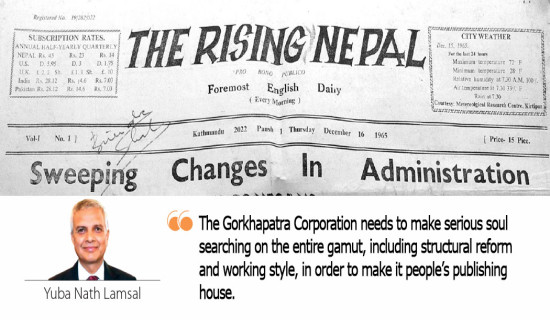- Tuesday, 17 December 2024
Economy On Track
The Economic Survey 2021/22, presented before the House of Representatives (HoR) on Saturday, provides a satisfactory picture of the national economy that has endured internal and external shocks due to the COVID-19 pandemic, global economic crisis and ongoing war in Ukraine. There were speculations that Nepal’s economy was moving on the path of Sri Lanka but the survey allays such unfounded apprehensions and projections as its growth rate is expected to stand at 5.84 per cent. This growth estimation is higher than the previous year’s but lower than the government’s prediction of 7 per cent. In the last fiscal year, the economic growth stood at 4.25 per cent because of unseasonal rains that damaged the ready-to-collect paddy crops in many parts of country and the pandemic badly disrupted business, industry and tourism for around two years. Nonetheless, the survey has shown gains in per capita income (PCI), inflow of foreign direct investment (FDI), electricity generation, social security, road construction, people’s access to internet and water supply and production of milk, meat and eggs.
Nepali’s per capita income has reached US$ 1,381 from US$ 1,246 in this fiscal year, which is a rise by 10.8 per cent in one year. Similarly, FDI has grown by 60 per cent in the first eight months of the fiscal year to 16.30 billion. Nepal’s total installed hydroelectricity capacity has increased by 520 megawatts – from 1685 MW by mid-July in 2021 to 2205 MW in mid-March 2022. About 94 per cent population has now access to electricity, including the alternative energy. The country has added 155 KM of road while 265 KM road is gravelled and 325 KM is black-topped. Around 93.4 per cent people have got the basic water supply but only 24.8 per cent population can drink high or medium level quality water. Nepal’s economy has become service-oriented, with the contribution of agriculture to the Gross Domestic Product (GDP) gradually declining. Agriculture, industry and service sector have contributed 23.9 per cent, 14.3 per cent and 61.8 per cent to GDP, respectively.
Meanwhile, the government has introduced budget on Sunday to implement the policies and programmes 2079/80, which the House of Representatives (HoR) approved Saturday with a majority vote, rejecting all amendment proposals. On Tuesday President Bidya Devi Bhandari presented the policy document before the joint session of the parliament. Lawmakers extensively discussed the content of document that has prioritised domestic production, infrastructure, energy, employment, agriculture and sustainable development. Responding to the lawmakers’ queries and concerns pertaining to the policy paper, Prime Minister Sher Bahadur Deuba said that it has set clear priorities with clear principles which is the need of the hour.
Expressing the government’s commitment to territorial integrity, non-aligned foreign policy, economic development, good governance and free and fair elections, Prime Minister Deuba said that Limpiyadhura, Lipulek and Kalapani belong to Nepal and the border disputes would be resolved through dialogue and diplomatic channels. The government is effortful to create an environment to accept the report prepared by the Eminent Persons Group (EPG) constituted by Nepal and India, he said, adding that Nepal abides by One-China policy and would not let Nepali soil be used against any neighbour. Prime Minister Deuba’s remarks have clarified the government’s stand on the vital issues. The new budget is expected to roll out realistic measures to substitute imports of agriculture produce and promote the consumption of electricity so as to reduce the use of the petroleum products, thereby easing the pressure on foreign reserves exchanges.

















